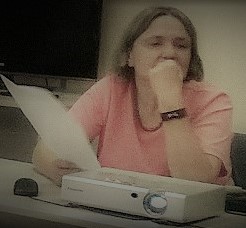A Publisher's Conversations with Authors: The Stages in the Process of Publication

(photo by Frank Perez) It is Tuesday. Time to tall turkey. Monday's madness is over, and Wednesday will take us over the hump, so Tuesday it is--for some serious discussion with authors. Tuesday talks mean to address authors in waiting and self-published authors who would like to go a more traditional route or who would at least like to take their steps with a publisher by their side. Today's topic is about the publication process itself. You have a manuscript in hand, now what? There are several stages. So, let's take each stage separately. Stage One. Completion of the Manuscript You have finished writing the manuscript and have carefully proofread it, but you are NOT ready to move to Stage Two. There are a few things you need to do first. If not done, this is the stage that often dooms a manuscript never to move to Stage Two and on into becoming a book. You proofread, right? For what did you proofread? Spelling? Ran it through the spellchecker? Certain your own eyes wil...




